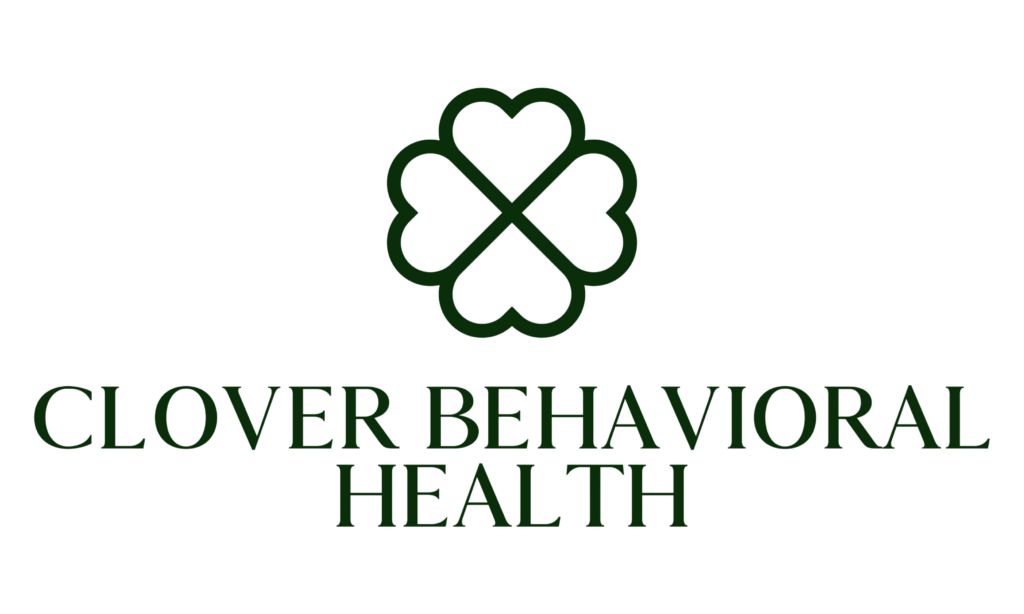Anxiety is one of the most common mental health conditions in the United States, affecting more than 40 million adults each year. While it’s normal to feel anxious occasionally—before a big test, job interview, or major life event—persistent anxiety that interferes with your daily life may signal an anxiety disorder. Recognizing the signs is the first step to getting help.
At Clover Behavioral Health in Massachusetts, we understand how overwhelming anxiety can feel. But you don’t have to navigate it alone. In this blog, we’ll break down five of the most common signs of anxiety—and what you can do to begin feeling better.
1. Constant Worry or Overthinking
One of the most prominent signs of anxiety is excessive worrying. If you find yourself dwelling on worst-case scenarios, imagining problems that haven’t happened yet, or struggling to control your thoughts, anxiety might be the root cause.
People with anxiety often describe their minds as constantly “on.” Even in calm situations, they may feel a heightened sense of alertness, scanning for potential dangers or mistakes.
What You Can Do:
- Challenge your thoughts. Ask yourself: Is this worry helpful? Is it based on facts or fear?
- Try journaling. Writing down your worries can help release them from your mind and make them easier to evaluate.
- Seek therapy. Cognitive Behavioral Therapy (CBT) is especially effective in helping people recognize and reframe anxious thought patterns.
2. Physical Symptoms With No Medical Explanation
Anxiety doesn’t just live in your head—it often shows up in your body. Common physical symptoms include:
- Racing heart or chest tightness
- Headaches or migraines
- Digestive issues like nausea or stomachaches
- Muscle tension or fatigue
- Insomnia or difficulty staying asleep
If you’ve ruled out physical illness but are still experiencing these symptoms, anxiety could be the underlying cause.
What You Can Do:
- Practice deep breathing. Inhale for four seconds, hold for four, exhale for four. Repeat until your body starts to relax.
- Exercise regularly. Even light activity, like walking, can release endorphins and reduce tension.
- Talk to a professional. A mental health provider can help you explore the mind-body connection and create a treatment plan that works for you.
3. Avoiding Social Situations or New Experiences
Social anxiety is a form of anxiety where people fear being judged, embarrassed, or rejected in social settings. Even simple interactions—like ordering coffee or joining a conversation—can cause distress.
Avoidance is a common coping mechanism. You may start skipping events, calling in sick, or staying silent during meetings to avoid discomfort. Over time, this can lead to isolation and impact your quality of life.
What You Can Do:
- Start small. Challenge yourself to engage in low-stakes social interactions, such as saying hello to a neighbor.
- Use grounding techniques. Bring your attention to your breath, surroundings, or a comforting object to reduce anxiety in the moment.
- Join a therapy group. Group therapy can offer a safe space to practice social skills and gain support from others with similar experiences.
4. Irritability and Difficulty Concentrating
Anxiety often masks itself as irritability, especially in high-functioning individuals. You may snap at loved ones, feel impatient, or struggle to focus—even when you’re not consciously aware of being anxious.
Your brain may feel “foggy” or overloaded, making it hard to stay on task or complete responsibilities. This is because anxiety hijacks the brain’s attention system, keeping you stuck in a loop of worry and distraction.
What You Can Do:
- Prioritize sleep. A good night’s rest can dramatically improve mood and focus.
- Break tasks into smaller steps. This makes overwhelming responsibilities feel more manageable.
- Consider medication. For some, short-term or long-term medication can help regulate mood and anxiety levels. Always consult a licensed provider.
5. Panic Attacks or Sudden Feelings of Doom
Panic attacks are intense, sudden episodes of fear or discomfort that peak within minutes. Symptoms can include:
- Heart palpitations
- Shortness of breath
- Dizziness
- Sweating or chills
- A feeling of losing control or dying
If you’ve experienced one or more panic attacks, it may be a sign of panic disorder—a type of anxiety that can be treated effectively.
What You Can Do:
- Remind yourself you’re safe. Panic attacks are uncomfortable but not dangerous.
- Practice slow breathing. Focus on extending your exhales to calm your nervous system.
- Seek help immediately. Therapy, especially exposure-based treatments, can help reduce or eliminate panic attacks over time.
When to Get Professional Help
If any of these signs sound familiar—and they’ve been affecting your ability to function or enjoy life—it’s time to reach out for help.
At Clover Behavioral Health, we offer compassionate, evidence-based treatment for anxiety and other mental health conditions right here in Massachusetts. Our team of clinicians will work with you to:
- Understand the root causes of your anxiety
- Develop coping strategies and healthy thought patterns
- Provide therapy, medication management, or a combination of both
- Offer flexible treatment options, including outpatient and intensive outpatient programs
Treatment Options for Anxiety at Clover Behavioral Health
We understand that every person’s experience with anxiety is different. That’s why we offer multiple levels of care:
- Outpatient Therapy: Weekly individual sessions focused on managing anxiety, learning coping skills, and improving quality of life.
- Intensive Outpatient Program (IOP): A structured treatment option with group therapy, individual therapy, and psychiatric support several times per week—ideal for those who need more than weekly therapy but don’t require inpatient care.
- Medication Management: Our psychiatric team works closely with clients to determine whether medication can be a helpful part of their anxiety treatment plan.
Take the First Step Toward Relief
Living with anxiety doesn’t have to be your “normal.” With the right support and treatment, you can regain a sense of peace, confidence, and control.
If you or a loved one is struggling with anxiety, reach out to us at Clover Behavioral Health. We’re here to walk with you every step of the way.
Contact Clover Behavioral Health today to learn more about our anxiety treatment programs in Massachusetts—and take the first step toward healing.



















